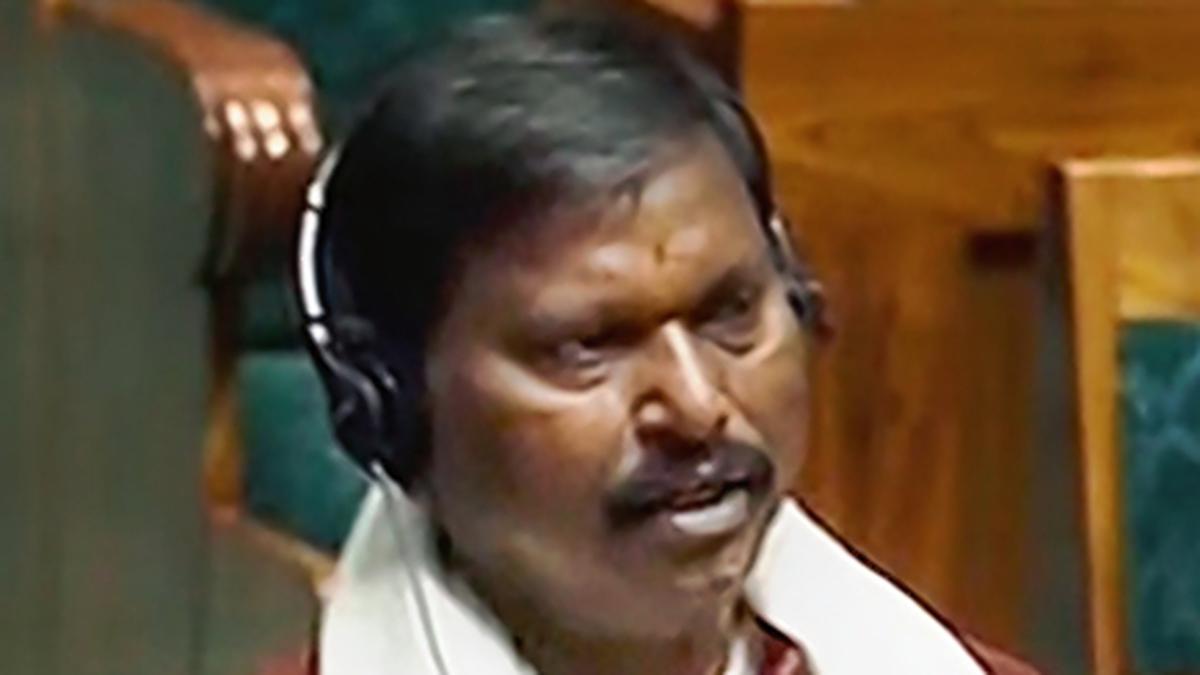
PM-JANMAN | Government targets Aadhaar, Jan Dhan, caste certificate saturation in 15,000 PVTG villages in 1 week
The Hindu
Union government launches IEC campaign to provide PVTGs with Aadhaar, caste certificates and Jan Dhan accounts in 100 districts.
Kicking off the Information, Education and Communication campaign for the PM-JANMAN package for the Particularly Vulnerable Tribal Groups (PVTGs) on December 25, the Union government has set a target of one week to achieve Aadhaar, caste certificate, and Jan Dhan account saturation across 15,000 PVTG habitations in 100 districts.
The Tribal Affairs Ministry said on December 25 that the campaign would cover 100 districts of 18 States and the UT of Andaman and Nicobar Islands; in the next phase, habitations in other parts of the country would be covered.
In the absence of any current data on PVTG populations, the government has estimated that there are over 22,000 such habitations and villages across these States and UTs, where around 28 lakh people live — all of whom it aims to cover under the PM-JANMAN package.
The package brings together 11 key interventions (like pucca homes, energisation of households, road and telecom connectivity, etc.) already being implemented by nine Ministries and focuses them towards saturation in these PVTG villages and habitations.
Prime Minister Narendra Modi announced the package on November 15 and his Cabinet cleared a ₹24,000 crore expenditure on it (over three years) within days. However, weeks later, at a government plenary session on December 15, it was revealed that to proceed with any aspect of the PM-JANMAN package, they would first need to ensure all intended PVTG beneficiaries are provided with documentation like Aadhaar, caste certificates and Jan Dhan accounts — essential to sign them up for benefits under the package.
“Based on this needs assessment, a nationwide IEC campaign will be operational from December 25, 2023,” a government statement said.
In a detailed action plan put together for the High-Powered Committee (comprising Cabinet Ministers of nine Ministries concerned) under the package, it was pointed out that several PVTG families in these areas do not have any basic form of documentation.

“Writing, in general, is a very solitary process,” says Yauvanika Chopra, Associate Director at The New India Foundation (NIF), which, earlier this year, announced the 12th edition of its NIF Book Fellowships for research and scholarship about Indian history after Independence. While authors, in general, are built for it, it can still get very lonely, says Chopra, pointing out that the fellowship’s community support is as valuable as the monetary benefits it offers. “There is a solid community of NIF fellows, trustees, language experts, jury members, all of whom are incredibly competent,” she says. “They really help make authors feel supported from manuscript to publication, so you never feel like you’re struggling through isolation.”

Several principals of government and private schools in Delhi on Tuesday said the Directorate of Education (DoE) circular from a day earlier, directing schools to conduct classes in ‘hybrid’ mode, had caused confusion regarding day-to-day operations as they did not know how many students would return to school from Wednesday and how would teachers instruct in two modes — online and in person — at once. The DoE circular on Monday had also stated that the option to “exercise online mode of education, wherever available, shall vest with the students and their guardians”. Several schoolteachers also expressed confusion regarding the DoE order. A government schoolteacher said he was unsure of how to cope with the resumption of physical classes, given that the order directing government offices to ensure that 50% of the employees work from home is still in place. On Monday, the Commission for Air Quality Management in the National Capital Region and Adjoining Areas (CAQM) had, on the orders of the Supreme Court, directed schools in Delhi-NCR to shift classes to the hybrid mode, following which the DoE had issued the circular. The court had urged the Centre’s pollution watchdog to consider restarting physical classes due to many students missing out on the mid-day meals and lacking the necessary means to attend classes online. The CAQM had, on November 20, asked schools in Delhi-NCR to shift to the online mode of teaching.









